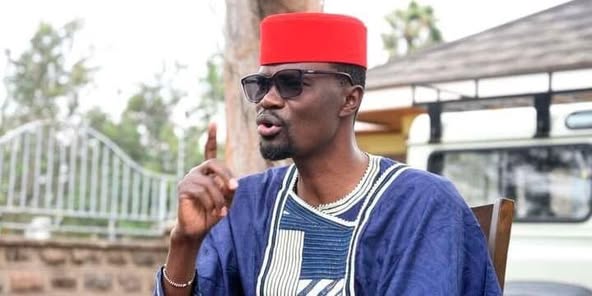
MP Didmus Barasa threatens constitutional amendment to limit IPOA’s powers » Capital News
NAIROBI, Kenya, Jun 19 – Kimilili Member of Parliament Didmus Barasa has threatened to table a constitutional amendment aimed at limiting the powers of the Independent Policing Oversight Authority (IPOA), arguing that the body has overstepped its mandate and is instilling fear within the National Police Service (NPS).
Speaking during a press conference at Parliament buildings, Barasa defended the police against rising criticism following the recent death of Albert Ojwang, a young man who died in police custody at Nairobi’s Central Police Station.
The incident has sparked public outrage, leading to protests across the Nairobi Central Business.
The legislator believes the national discourse has become one-sided, vilifying police officers while ignoring the complex realities they face on duty.
“I am perturbed by the way the protesters are treating our law enforcement agencies, and I am equally shocked by the manner in which some leaders are attacking police officers,” he said.
“If this trend continues, it will be difficult for police officers to maintain law and order for fear of prosecution.”
Barasa argued that IPOA’s quick involvement in police-related incidents, especially those caught on video, has created a climate of fear that is undermining the ability of officers to do their jobs effectively.
He said IPOA has become more focused on punishing police officers than understanding the circumstances under which they operate.
“When a judge makes a mistake, we say ‘the court erred.’ But when a police officer makes a mistake, he is arrested, dismissed, prosecuted,” Barasa stated.
“That is why I will be proposing amendments to either reduce the mandate of IPOA or disband it altogether.”
According to him IPOA should not open new investigations into incidents already being handled by internal police mechanisms, comparing it to how Parliament is barred from handling matters that are before a court of law.
Barasa was particularly critical of IPOA’s role in the fallout from the death of Ojwang. He questioned why the Officer Commanding Station (OCS) at Central Police Station was arrested, despite not being on duty at the time Ojwang was booked.
“From where I sit, I think it was very unfair for the OCS to be arrested. The person who was on duty when Ojwang was booked into the OB should be the one facing questions. But IPOA rushed to arrest the OCS, and that sends the wrong message,” he said.
The MP further lamented what he sees as public disrespect for the police, citing a viral video of a young woman allegedly attempting to slap a female police officer during a protest in Bungoma. He argued that such incidents have made officers hesitant to act, fearing backlash or prosecution.
“We have reached a dangerous point where civilians feel bold enough to intimidate police officers, even those armed and in uniform,” he said. “If an officer retaliates, IPOA opens a file. We are creating an environment where the police are powerless.”
Barasa emphasized that his push to amend IPOA’s powers is not meant to condone police brutality, but to protect the integrity of the service and ensure officers can operate without undue interference.
“Yes, there are isolated cases where police have acted outside the law, and they should be dealt with individually. But we cannot condemn the entire service for the mistakes of a few,” Barasa emphasized.
He also weighed in on the recent stepping aside of Deputy Inspector General Eliud Lagat, describing it as unnecessary and unfortunate. According to Barasa, Lagat had simply followed the law by reporting a complaint and should not have been pressured to step down.
“Was he the central police officer? Was he the OCS? No. So why should he resign? If we continue linking top leadership to every mistake on the ground, we are weakening the institution,” he said.
Barasa concluded by calling on Kenyans to reflect deeply on the role police officers play especially in volatile regions like Suguta Valley, West Pokot, and Baringo and urged the public not to generalize isolated cases of misconduct.
“Without the police, we would descend into anarchy. Let us be careful not to trade the rule of law for mob justice disguised as accountability,” he said.